They can cause allergic reactions
Allergic reactions to ink are rare but they do happen. When you get a tattoo, the artist has to mix his or her own colors from a variety of inks, and rules regulating these compounds vary between countries.
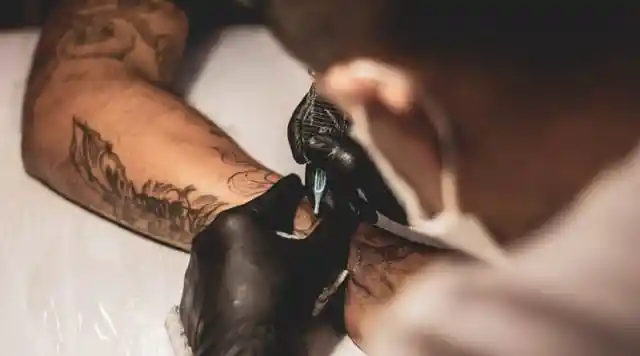
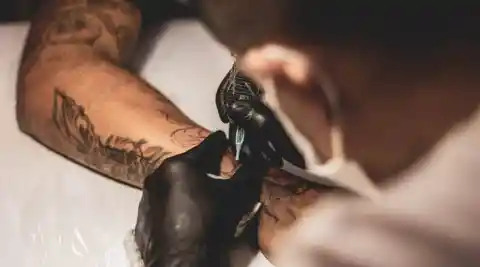
With this in mind, there’s not always a way to know what’s really in the ink. Your body may react badly to the foreign substance, and by the time you realize, it might be too late. Nobody wants to leave a tattoo parlor with a half-finished tat and a bad rash!
You can get infections
Tattoos are amazing, but there are some reasons to be wary of getting them. While most tattooists adhere to strict health and safety rules in their practice, in some countries, there is a lack of awareness from tattoo artists about the dangers of reusing needles.
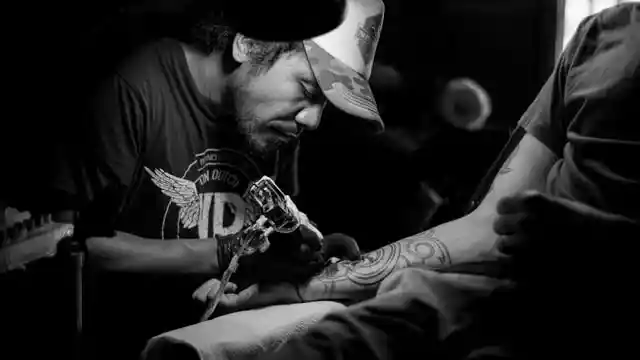
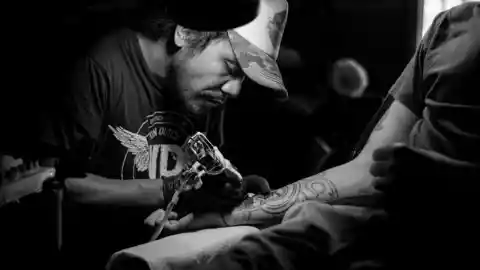
There have also been reports of home tattoo kits – which have become popular in recent years – leading to infections as young people purchasing the kits are uninformed about the cleanliness requirements. If you're thinking of getting a tat, make sure you always consult a professional artist with a reputation for cleanliness and quality.
Tattoos are linked to blood-borne diseases
Catching a disease from a tattoo may be rare, but it’s still a risk. Many people may think that replacing needles is the only precaution they need to take, but you can also catch diseases like hepatitis from reused ink.


A study by the American Association for the Study of Liver Disease found that people with hepatitis C were four times more likely to have tattoos. Always make sure you’re visiting a licensed tattoo artist and that they are taking the correct safety precautions.
They can develop fungal infections
Tattoos are becoming more and more common, both as a form of self-expression and as a way to beautify the skin. But all tattoos, like any other body modification, can develop complications. A fungal infection is one of the less commonly known risks of getting a tattoo.


The best way to avoid a fungal infection on your new ink is to follow the cleaning instructions from your artist. Keeping your new tattoo clean and dry is imperative, as fungal bacteria is prone to growing in damp, covered spaces (like underneath a bandage).
You can be scarred
When you get a tattoo, you are not only getting an artistic design etched onto your body. You are also taking the responsibility of taking care of it. If you fail to take care of your tattoo, it may result in skin scarring which may not go away even after years.
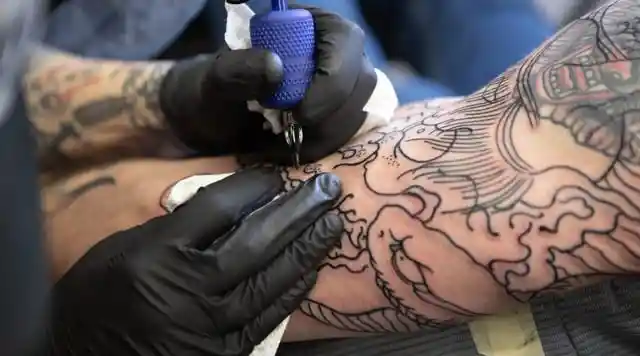
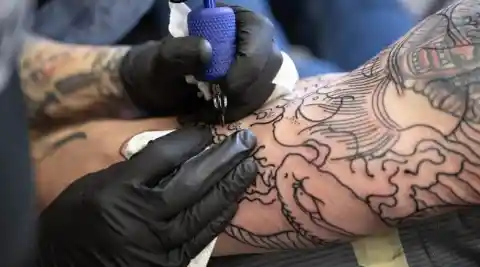
While tattoo scarring is uncommon, it's still an unpleasant and unsightly occurrence. Even if you take care of your tat perfectly, an unskilled or unqualified tattooist can cause scarring through poor technique or poor equipment. Make sure you're choosing a reputable artist who has examples of their work.
You may develop a rash
A foreign substance that is introduced into the body through a wound can cause itchy rashes, hives, or bumps while your body fights against foreign invaders. The immune reaction that occurs when you get a tattoo is no different.


The ink that deposits in your skin causes an immune response as your body heals and attacks substances that it perceives as foreign matter. Certain inks and colors are more prone to causing rashes, with red ink being one of the top culprits.
They can interact with your medication
Before getting a tattoo, you should always take the time to research the effects of any medication you're currently taking. Some blood thinners have been known to cause excessive bleeding, which would be greatly increased during tattooing in the skin and surrounding tissue.


Even acne medication poses risks when being tattooed due to how it can affect the skin’s response to being inked. Many users of acne medication will experience an increase in pain levels as well as a greater likelihood of experiencing redness or swelling.
They can cause complications with MRI results
While tattoos don’t necessarily interfere with the accuracy of MRI results, they can be distorted by the inks used in the tattoo design, making the results harder to read. The larger the tattoo, the more likely it could cause problems – especially if it uses red ink with iron-based dyes like carbon black and hematite.


If you're due for an MRI scan and you're covered in tats, make sure you tell your doctor and medical staff beforehand so that they can prep accordingly. The last thing anyone wants is a last minute delay on an important procedure because you didn't tell your healthcare professional about that intricate giant back piece.
Tattoos can cause a temporary sun allergy
Sun allergies are the most common form of skin allergies. For some people, a sun allergy on tattooed skin can cause a reaction similar to that of severe sunburn. Luckily, this is not a long-lasting reaction like sunburn. Over time, your skin will become accustomed to the sun and you may not be allergic to it anymore.


Nevertheless, taking care of your tattoos in the sun should be a top priority. While it's important to make sure all your skin is covered in sunscreen, the areas where you're tattooed will be particularly sensitive to UV exposure. Make sure new tattoos are adequately covered before heading out to the beach.
You have a higher risk of developing a skin disease
Some research has shown that tattoos can increase your chances of developing certain skin conditions such as eczema or psoriasis. This may be because any new foreign substances introduced into the body trigger an immune response and increase the likelihood of developing an autoimmune disease like these ones.


While these effects are uncommon, they're unpleasant and uncomfortable. Furthermore, itching your new tat before the ink has settled can lead to an alteration of the linework of design - not something you want when you've just got a picture permanently etched onto your body.
Your lymph nodes may swell
Some people have swelling in the lymph nodes near their tattoos, which is caused by the ink spreading through their lymphatic system. It usually goes down within a few days, but if it’s still swollen after a week or two you should see your doctor.


The lymph nodes are part of your immune system, so when they’re swollen it can cause your whole body to become inflamed. If your new tattoo comes with swollen glands, a sore throat and a fever, you might be having a bad reaction.
Tattooed areas are subject to accelerated aging
The body naturally ages with time, but tattoos seem to accelerate the process. Older pigment inks used in tattoos from decades past have been found to contain carcinogens and other toxic compounds, which eventually get into your blood and cause damage on a cellular level.
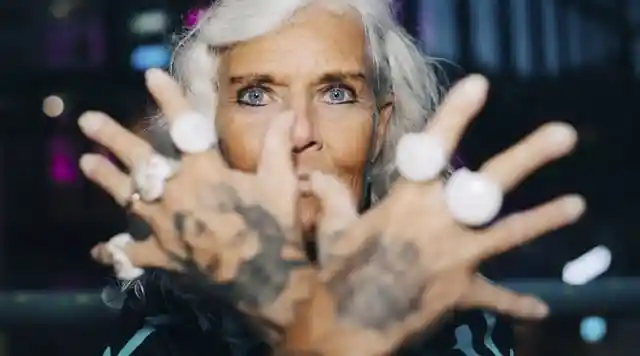
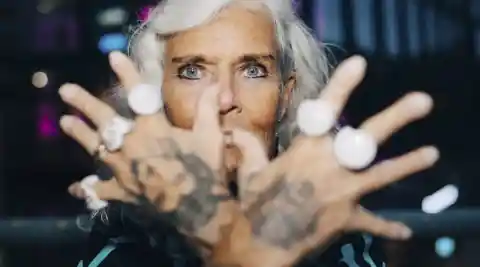
Sure, with more and more of us being covered in tats, the next generation of old folk are bound to look a little different. But just know that tattooed skin can not only age faster, the effects of that aging will also be aesthetically extra obvious.
Tattoos can cause increased sensitivity
Tattooing also damages the top layer of skin, making it more likely for you to develop extra sensitivity and acne breakouts later on. This damage often can’t be reversed. One study found that the number of bacteria present on the skin increased by up to 125% after getting a tattoo.


Even years later, tattoos can be prone to feelings of sensitivity, with the skin even raising in unsightly bumps that can be itchy or painful. Changes in air temperature or moisture can also cause tattooed skin to become extra sensitive.
You may be at risk for blood clots
The formation of blood clots is a serious concern for anyone with existing disorders, and getting a tattoo can create additional health issues that might not have been present before.


Before making any decisions about getting a tattoo, people with blood disorders should consult their doctors, and proceed according to their advice. Tattoos might look cool, but they're not worth severely effecting your health for.
Tattoos can affect your sweating ability
Tattoos cover a lot of skin, and they’re known for being painful to get. But can they hurt your body? A new study says they might actually cause you some trouble if you work up a sweat. That’s because tattoos block the body’s natural ability to cool itself through perspiration.


This in turn can lead to a whole host of nasty effects such as rashes, heat exhaustion and irritated skin. If you're a frequent gym goer who's covered in tats, you might find it harder to cool down.
They are linked to an increased risk of cancer
Recent studies have shown that metal nanoparticles from tattoos can cause DNA damage. In an animal model study, researchers found that when breast cancer cells were exposed to these nanoparticles, the tumor growth rate increased.


The study also found that the cancer was able to spread more quickly. Another study found at least 64 reported cases of tattoo-associated skin cancer in humans.
They can become inflamed
Tattoo ink is full of nanoparticles. Nanoparticles are so small that they can slip through the skin barrier and make their way into the lymph system. The result is that these particles cause chronic inflammation, which can lead to a whole host of diseases like diabetes, heart disease, strokes, Alzheimer’s disease and other forms of dementia.


Less seriously but still unpleasant, tattoos can become inflamed at simple changes in air pressure or temperature, leading to itchiness and raised skin that neither looks or feels as cool as a tattoo is meant to.
You may develop keloids
Tattoos leave permanent marks on your skin, and they can also leave lasting scars after you get them. Unfortunately, tattoos can also result in keloids, which are raised scars. These skin lesions can grow anywhere on the body where there has been trauma and can be difficult to treat.


While uncommon, keloids are an unpleasant and unsightly rare side effect of some tattoos. An experienced, highly rated tattooer will be able to minimize the risk, so it's essential to put in the research before permanently altering your body.
The ink can be toxic
The ink used in tattoos can be made up of a variety of materials, including water, alcohol, and pigments. Many people don’t realize that the ink used in tattoos can have harmful ingredients.
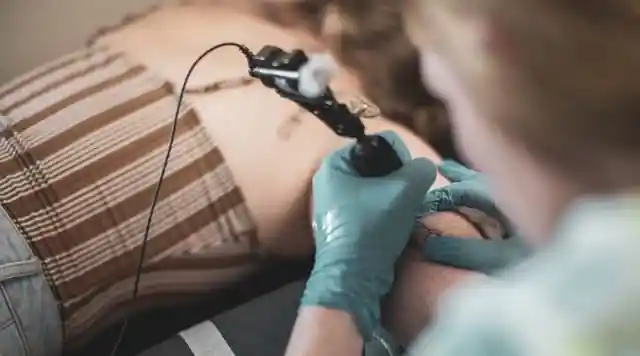
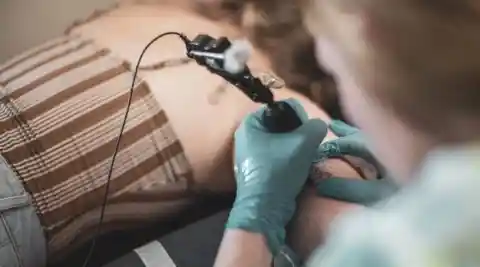
To make matters worse, there is no federal regulation on tattoo ink manufacturers, and tattoo ink producers aren’t required to list the ingredients on the product label.
You could develop a tattoo addiction
Tattoos are also addicting, and once you have one, there’s no telling how obsessed with them you’ll become. Once again, this could be fine if that’s what you want – but it’s important not to get too many tattoos too quickly without really considering whether or not this is something that will interest you long-term.


Addictions are not only detrimental to your mental health but also your wallet - tattoos aren't cheap, and the more you have, the more you'll have to spend on them.
Tattoos can deform over time
Your tattoo may be a masterpiece, but it might not last forever. Even if you take great care of it, your body will naturally break down the pigment in your skin and cause the ink to fade.


The speed at which this happens depends on various factors, including the type of tattoo you have and how long ago you got it. While not necessarily bad for your health, it's still an unsightly consequence.
You may regret them
You might think that getting a tattoo is something you would never regret, but it turns out that you are not alone if you have second thoughts. A recent study of 600 people with tattoos found that 78% of participants regretted at least one of their tattoos. And 19% of participants with two tattoos regretted both.


Tattoo regret won't affect your physical health, but it could be detrimental to your mental health. After all, nobody wants to look in the mirror and see something on their body that they're unhappy about.
You could develop granulomas
The skin reacts as it heals from a tattoo, meaning it’s normal for there to be an inflammatory reaction in the process of healing. Granuloma is a more serious reaction that involves hard red bumps around the tattooed region.


These red bumps may be tender to touch and can appear anywhere from days to months after getting tattooed. If you suspect your new tat has come with a side of granulomas, seek the advice of your healthcare professional.
You may experience swelling and burning
Swelling is a common side effect after getting a tattoo. It can occur within the first two weeks and subside after that period. If you notice that your tattoo has become swollen, you should ensure that you are taking good care of it.
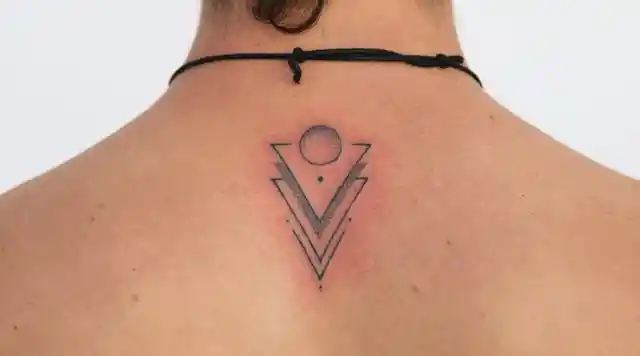

To avoid swelling or redness, try not to touch or scratch your tattoo with dirty hands. Swelling and burning aren't necessarily dangerous on their own, but they could be a symptom of something more serious.
The ink can cause heavy metal toxicity
The most common heavy metal found in tattoo ink is lead. It is used for reds, yellows, oranges, browns, and blacks. Lead is toxic in large amounts and even small amounts can affect an unborn baby’s development.
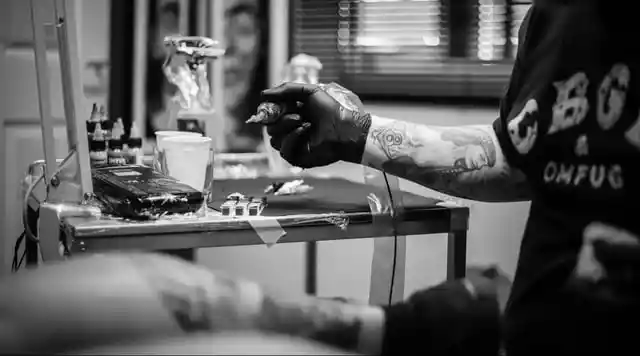
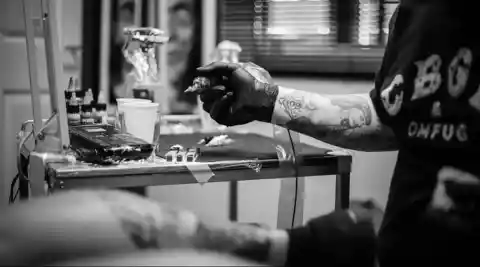
If you are exposed to high levels of lead during pregnancy it increases your risk of having a miscarriage. If you're planning on starting a family and you're heavily tattooed, maybe consult with your healthcare professional before hand.
Back tattoos can lead to epidural complications
The vast majority of the time, women with lower back tattoos can safely receive an epidural during labor. Complications are rare, and they typically depend on the specific circumstances of your tattoo and your delivery.
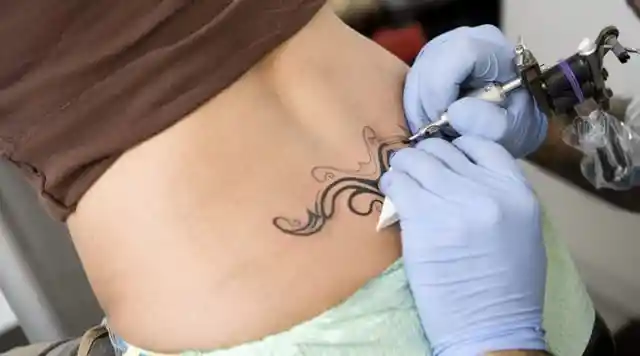
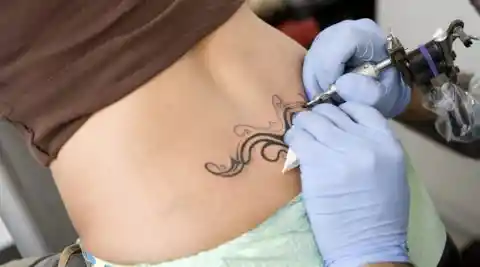
If you have any redness or leakage around your tattoo, it might not be safe for your doctor to give you an epidural because doing so might cause a serious infection.
There is a risk of HIV
The best way to avoid getting HIV from a tattoo or piercing is to get the equipment sterilized between uses. It is also important to use new, sterile needles and equipment for each person.


However, even though the risk is very low, the CDC has confirmed that it is possible to get HIV if you don’t use clean equipment or if you share ink.
Tattoos can cause nerve damage
Because tattooists inject ink into the skin using needles, there’s always the risk that they will hit a nerve or accidentally break or bruise the skin while doing so.


These injuries can go right to the bone, causing permanent damage to your body that could make simple tasks painful to do down the line. To avoid this, make sure you choose a tattoo artist who is reputable, professional and well-trained.
You could develop an autoimmune disorder
When you get a tattoo, the body’s defense mechanism kicks in and produces antibodies designed to fight the foreign invaders – but in this case, those foreign invaders are your own white blood cells!


If you have an autoimmune disorder – like lupus or rheumatoid arthritis – this response from your immune system can worsen or even trigger your symptoms.
Dark tattoos can lead to difficulty detecting skin cancer
Dark tattoos on large areas of your body may prevent you from detecting skin cancer symptoms. One of the first signs is discolored spots on your skin. Never have a tattoo placed over a mole, birthmark, or other discolored area of your skin.


Although there is no evidence that tattoos cause skin cancer, tattoo ink may conceal clinical signs of skin cancer. Make sure you're regularly checking your tattoos for any changes in size, texture or sensitivity.
Tattoos could limit your job prospects
Some companies and government jobs say that candidates with tattoos on any body part other than the inner face of the forearms, i.e. from the inside of the elbow to the wrist, are barred from the recruitment process. So make sure any ink you get is aligned with your career goals.


While not dangerous to your physical health, being rejected from your dream job can wreak havoc on your mental health and opportunities for the future. Have a good think before you commit to any ink that could destroy your career goals.
You may get the tattoo flu
Tattoo flu is a term that has been used to describe a side effect of getting a tattoo. It is not an actual illness. However, it can cause symptoms similar to the flu, such as exhaustion, chills, muscle pain and gastrointestinal symptoms.
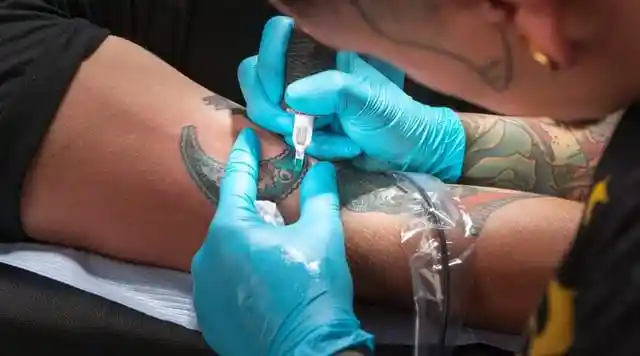
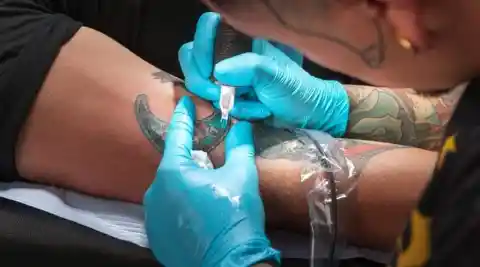
With the popularity of getting tattoos increasing, so has the amount of people experiencing tattoo flu. There are times when these symptoms are normal and there are times when they require additional medical attention.
Medication reactions may cause excessive bleeding
Blood thinners and NSAIDs like aspirin, as well as drinking alcohol can cause excessive bleeding during your tattoo session. This is because they prevent clotting, which can make it trickier for your artist to do their job.
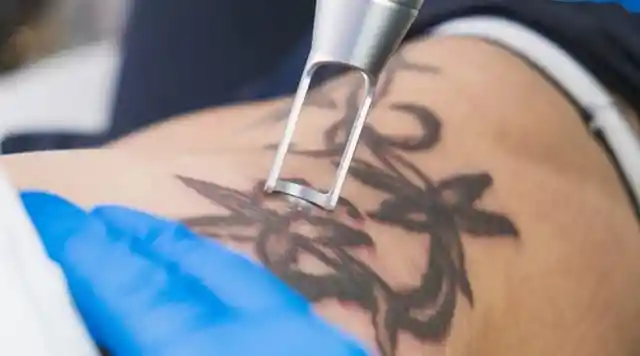
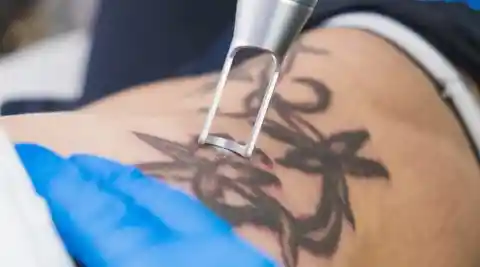
Be sure to check with your doctor if you take any blood thinning medications before getting a tattoo, and avoid any partying the night before.
Tattoo particles can infect your breast milk
While tattoos are becoming more accepted in society, getting new tattoos isn’t the best idea if you’re breastfeeding. We know that ink particles can get into breast milk, but there’s no solid research out there on whether or not this could affect your child.


In any event, it’s better to wait to be inked until you’re done, and always consult with your doctor if you're planning on getting a tattoo while your baby is still nursing.
They can weaken your immune system
As long as you go to a reputable shop and your artist uses high-quality ink, there are basically zero risks involved with this kind of procedure – however, if your artist does use inferior ink with toxic ingredients, it can actually weaken your immune system over time!
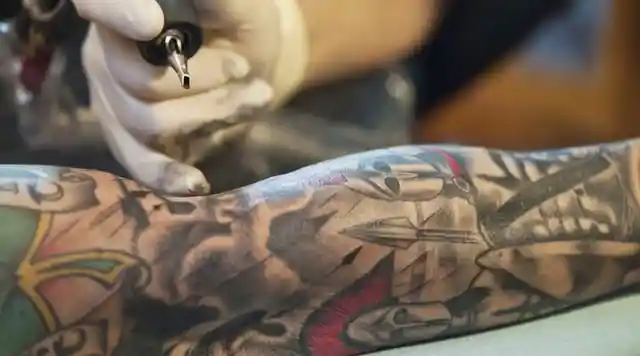
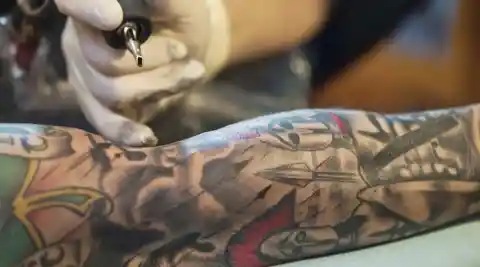
Make sure that your tattooist is well-trained, professional, reputable and aware of these risks. It's always worth having a conversation about your concerns with your tattoo artist before you let them permanently alter your skin.
Your pets could give you an infection
We all know that pets are man’s best friend, but when you get a new tattoo, your new pet needs to be kept at bay. Most people don’t realize that their feline friends can cause unnecessary problems when they come in contact with healing skin.


Even if you have a little kitty, it only takes one cat scratch to cause an infection in your new tattoo. If you're still healing from your tat, keep the rough playtime to a minimum.
You may have aesthetic concerns
Tattoos will age as you do, with wrinkles and sagging skin affecting how they look on the body. Not only that, but as tattoos fade over time they may become less visible than you’d hoped or even completely disappear because of aging, sun exposure, and other lifestyle habits.
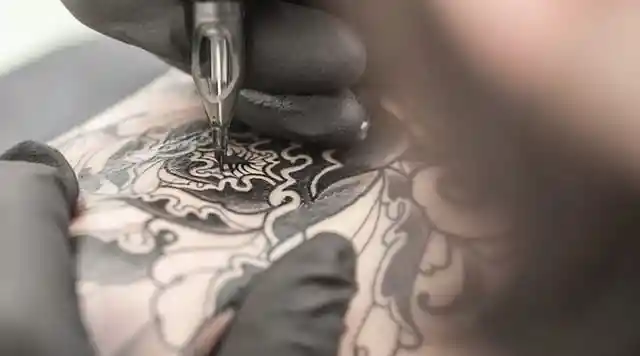
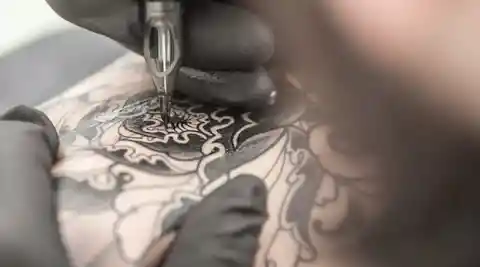
While aesthetic concerns aren't exactly dangerous to your health, they could lead to reckless decisions such as plastic surgery, which you might end up regretting even more.
Tattoos could lead to amputation
Now, before you freak out, know that this is an exceedingly rare occurrence- but it has happened. The most severe reactions caused by tattoos have happened because of red and pink ink. There have been reports about serious illnesses (e.g. blood poisoning and gangrene) being caused by tattoos containing red or pink ink applied incorrectly.


In some cases even so severe that amputation of a leg or an arm has been necessary because of tissue damage. To minimize this risk, make sure you're visiting a reputable tattooist with plenty of experience.
Tattoo removal can be dangerous
Tattoo removal is a tricky business, and it’s not for the faint of heart. There are three main ways to get rid of a tattoo: surgical removal, laser removal, and dermabrasion; all three can be expensive, painful, and potentially dangerous.
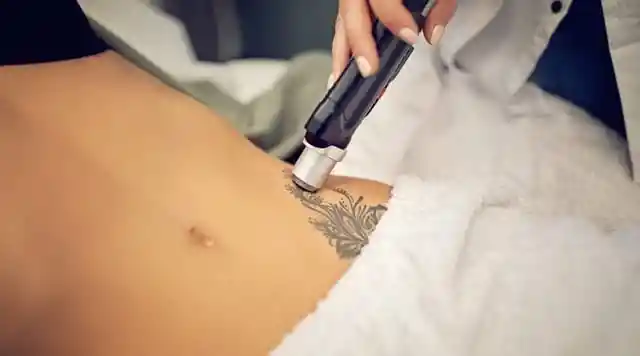

No matter which method you choose, you’re likely going to be left with scars where your tattoos used to be.
You could develop dermatitis
One potential side effect of tattooing is allergic contact dermatitis, which is an itchy rash caused by an allergic reaction to something that has touched the skin.
Research has shown that these reactions occur more commonly when people get tattoos with certain colors, such as red or green, so maybe think twice about getting that Christmas themed back piece.